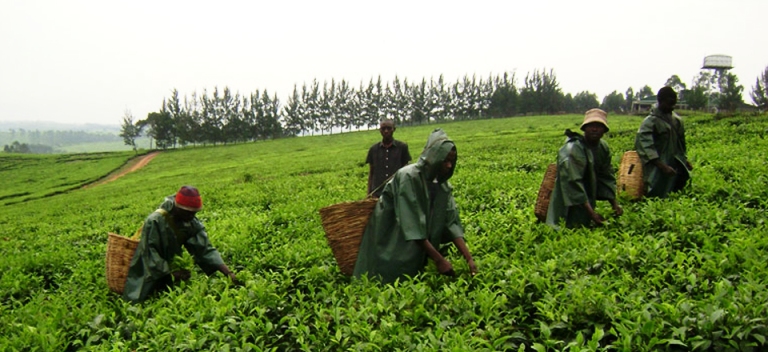The Government of Uganda is set to lose Shs100bhn so far invested in tea growing project in Kigezi sub region, Buhweiju and Kabarole district.
This is because the area is not suitable for tea growing, says Auditor General’s Report for 2017.
The rot in the project was exposed after John Muwanga, the Auditor General undertook a special audit of the supply of tea seedlings to farmers in Kigezi sub region, Buhwejju and Kabarole for the financial year 2013/14.
The audit focused on the preparation, distribution of tea seedlings and farm Management practices of farmers in the five districts of Kisoro, Kanungu, Kabale, Buhweju and Kabarole district.
The report reveals that the slope of the land for tea growing is critical. According to best agronomical practices, the recommended slope should range between 10 to 20%. Any slope that is below 10% risks heavy water logging while any slope above 20% risks severe loss of soil by erosion which is detrimental to the proper growth of tea seedlings.
“According to the 94 farms visited in the 5 districts, the gradient was too steep in some areas whereas some farms were located in deep swamps that were prone to waterlogging.
I noted that the gradient slope of the sampled farms ranged from 2.53% to 78.38% which indicated that some farms had a gradient exceeding 20% which in this case was not suitable for tea growing.
Out of a sample of 94 farms, 53 farms (representing 56%) exceed 20% acceptable gradient while 19 farms (representing 20%) were located in low lying areas that were prone to waterlogging (below 10% gradient). 22 farms (representing 24%)were in the acceptable range,” Muwanga says in the report released in late December.
“I observed that the topography was not considered at all in selecting sites for tea growing as indeed some farms were lost due to water logging.
There appears not to have taken technical consideration in the growing of tea in the region. This is likely to affect the success of the programme which could lead to a substantial loss of investment in excess of UGX.100Bn so far invested into the programme since 2013/14 to-date,” the report adds.
Unaccounted for Acreage and seedlings
The Auditor General further reviewed the supply of tea seedlings Vis-a-vis the acreage planted. The total estimated acreage of the 64 farms sampled was 937.517 acres in the 5 Districts.
However, the measured acreage of these farms was 473.581acres resulting into additional acreage of 463.936 acres that could not be traced, the report says.
It was noted that 4,440,507 seedlings were supplied instead of the recommended 2,369,333 seedlings resulting into excess supply of 2,071,174 seedlings valued at Shs932 million at a market rate of Shs450 per seedling. “Further, I noted that 27,000 seedling supplied to the Zatwoshaho Joy to Bukinda seminary and Bukinda Parish, could not be traced to particular tea farmers in Kabale District,” the report says, adding: “I noted that there was no proper mechanism to verify the acreage prior to supply of seedlings. There is a risk that seedlings were supplied to non-existent farms.”
“Management should establish a mechanism of verifying actual acreage of land prior to distribution of the tea seedlings. This should be a basis for determination of number of seedlings supplied to the farmers and paid to the suppliers,” Muwanga recommends in the report.
Failure To Provide Extension Services
According to the project design, the lead Agencies were required to provide advisory services to the farmers, including among others farm setting, land preparation, planting of tea seedlings, weeding and pruning and water control, harvesting and transporting the tea leaves.
It was noted that NAADS paid Shs1.4bn to two Lead Agencies in the Districts of Kisoro and Kanungu to provide extension services to farmers.
However, all the farmers interviewed indicated that no extension services were provided during the planning period, says the report.
“Because of inadequate extension services, I noted that the quality of planting materials greatly deteriorated at the time of planting due to poor handling and long distances of transportation of tea seedlings in Buwheju, Kanungu and Kabale Districts. In most cases, the nurseries were very far from the farms where the materials were to be planted leading to delays in delivery of seeds,” the report reveals.






